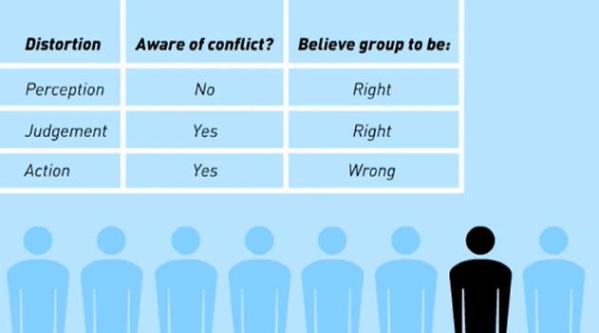![Social Scientist Philip Zimbardo: Factors Other Than Character Determine Behavior [TED Talk]](http://www.mutualresponsibility.org/wp-content/uploads/2012/08/Popeye-word-cloud-by-Terry-McCombs1.jpg)
![Social Scientist Philip Zimbardo: Factors Other Than Character Determine Behavior [TED Talk]](http://www.mutualresponsibility.org/wp-content/uploads/2012/08/Popeye-word-cloud-by-Terry-McCombs1.jpg)

Stanford Prison Experiment Shows How The Abuses At Abu Ghraib Could Be Perpetrated By Otherwise Good People
Dr. Philip Zimbardo, Professor Emeritus of Psychology at Stanford University, and who once conducted the now famous Stanford Prison Experiment, recently related the results of that 1971 experiment to the abuse discovered at Abu Ghraib. He said, When the images of the abuse and torture in Abu Ghraib were revealed, immediately the military went on the defensive saying it’s a few bad apples. When we see people do bad things we assume they are bad people to begin with. But what we know in our study is: there are a set of social psychological variables that can make ordinary people do things they could never have imagined doing.” The Stanford Prison Experiment was conducted over a six day period in a mock prison environment in the basement of one of the buildings at Stanford University. It demonstrated how ordinary people can perpetrate extraordinary abuses when placed in a cruel environment without clear rules, as shown in this short documenatry [13 min]. What Happens When You Put Good People In Evil Places? Dr. Craig Haney, a social psychologist participating in the Stanford experiment said of it, We frankly didn’t anticipate what was going to happen. We tried to really test the power of the environment to change and transform otherwise normal people. Much as Milgram had changed or transformed otherwise normal people in an obedient situation, we wanted to do it in a prison-like situation.” Experiment Participant Relates To The Guards At Abu Ghraib Dave Eshelman, who played the role of a prison guard in the Stanford University mock prison experiment, said of the Abu Ghraib prisoner abuse photos, What...
The Asch Experiment: Can Social Influence Distort Your Perception?
We will conform to the group. We’re very social creatures. We’re very much aware of what people around us think. We want to be liked. We don’t want to be seen to rock the boat so we will go along with the group even if we don’t believe what people are saying, we still go along.” * This is a conclusion from what is known as “The Asch Experiment,” an experiment originally conceived in the 1950’s by Social Psychologist Solomon Asch, demonstrated in the video below [2 min.]: The 3 Levels of Distortion As indicated in Martin Shepard’s video about conformity [10 min.], “Asch proposed conformity could be explained by distortions occurring at any of three levels: perception, judgment and action.” At the action level: subjects believe the majority are wrong, but go along with them anyway. At the level of judgment: subjects perceive there is a conflict but reject their own judgment, concluding the majority are right. At the level of perception: subjects’ perceptions are genuinely distorted by the majority’s answers”. “If it’s true that the subjects’ perceptions are genuinely distorted, that means that group opinion has the potential to affect an individual’s information processing on a very profound level.” ** * Source: YouTube/The Asch Experiment **...
